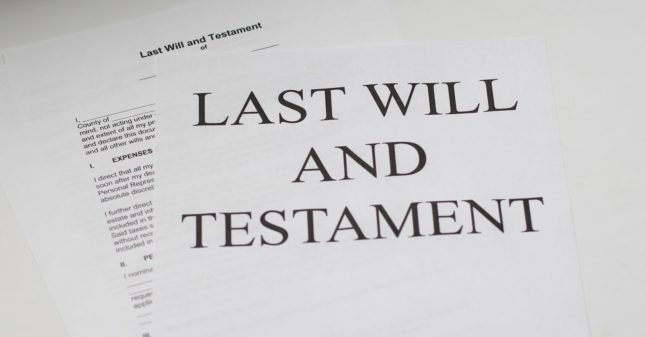Switzerland’s inheritance legislation that was in force until the end of 2022 dated back to the last century.
As it was based on the family model that was predominant at the time — marriage — it has become outdated and had to be revised to take into account the evolution of society and varied living arrangements that are more widespread today.
At the end of 2020, the parliament adopted the revision of the inheritance law and the new legislation came into effect on January 1st.
The way it was: compulsory inheritance
Under the old system, close relatives could not be disinherited, regardless of whether you liked them or not.
People may have wanted to disown ungrateful children, leaving them nothing more than a symbolic franc after death, but the law didn’t allow it: the government did not want survivors to fall on hard times and depend on social assistance.
It also wanted to prevent discord in the families, with disgruntled children fighting over their share of inheritance.
The rule, even if there was a last will and testament with specific wishes, was strict: 50 percent of the estate went to the spouse, and the remaining half was divided equally among the children.
The law also included several variations of the compulsory inheritance rule.
For instance, if the deceased was married but had no children, all the assets went to the spouse, unless the parents were still alive, in which case the spouse received 75 percent and the parents the remaining 25 percent.
If siblings were in the picture, they too received an obligatory cut — all the way down to nieces and nephews in the absence of children and grandchildren.
In a way, the system was clear and straightforward — everyone knew what they were entitled to by law.
What is different now?
The new law gives you a bit more freedom in deciding, in your will, how to allocate your assets.
The compulsory inheritance is still…compulsory, but it will make up a smaller portion of your estate.
Your spouse and children (or other legal heirs, as mentioned above) will receive only 25 percent each, with the remaining 50 percent distributed as you see fit.
Also, the parents will no longer inherit any part of your assets under the current legislation.
The above rule is only valid if you have a will where you specify how you want to distribute the non-compulsory part of your estate.
In case you pass away without it, however, the 50 – 50 split between the spouse and children / legal heirs still applies.
The new law is explained here in simple and general terms; there are a number of other provisions and stipulations in the new legislation.
It is best to consult an estate attorney to find out all the details.
READ MORE: Funerals, burials and wills: What you should know about dying in Switzerland



 Please whitelist us to continue reading.
Please whitelist us to continue reading.
Member comments